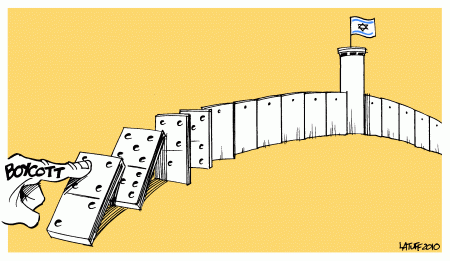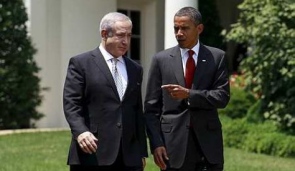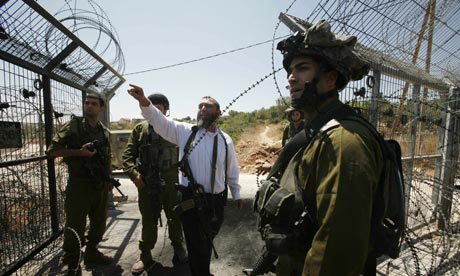
Robert Fisk: Israel has crept into the EU without anyone noticing: The Independent
Saturday, 31 July 2010
There was a Nato-Israeli exercise in progress. Well, that’s OK then. Now imagine the death of five Hamas fighters in a helicopter crash in Romania this week. We’d still be investigating this extraordinary phenomenon. Now mark you, I’m not comparing Israel and Hamas. Israel is the country that justifiably slaughtered more than 1,300 Palestinians in Gaza 19 months ago – more than 300 of them children – while the vicious, blood-sucking and terrorist Hamas killed 13 Israelis (three of them soldiers who actually shot each other by mistake).
But there is one parallel. Judge Richard Goldstone, the eminent Jewish South African judge, decided in his 575-page UN inquiry into the Gaza bloodbath that both sides had committed war crimes – he was, of course, quite rightly called “evil” by all kinds of justifiably outraged supporters of Israel in the US, his excellent report rejected by seven EU governments – and so a question presents itself. What is Nato doing when it plays war games with an army accused of war crimes?
Or, more to the point, what on earth is the EU doing when it cosies up to the Israelis? In a remarkable, detailed – if slightly over-infuriated – book to be published in November, the indefatigable David Cronin is going to present a microscopic analysis of “our” relations with Israel. I have just finished reading the manuscript. It leaves me breathless. As he says in his preface, “Israel has developed such strong political and economic ties to the EU over the past decade that it has become a member state of the union in all but name.” Indeed, it was Javier Solana, the grubby top dog of the EU’s foreign policy (formerly Nato secretary general), who actually said last year that “Israel, allow me to say, is a member of the European Union without being a member of the institution”.
Pardon me? Did we know this? Did we vote for this? Who allowed this to happen? Does David Cameron – now so forcefully marketing Turkish entry to the EU – agree with this? Probably yes, since he goes on calling himself a “friend of Israel” after that country produced an excellent set of forged British passports for its murderers in Dubai. As Cronin says, “the EU’s cowardice towards Israel is in stark contrast to the robust position it has taken when major atrocities have occurred in other conflicts”. After the Russia-Georgia war in 2008, for example, the EU tasked an independent mission to find out if international law had been flouted, and demanded an international inquiry into human rights abuses after Sri Lanka’s war against the Tamil Tigers. Cronin does not duck Europe’s responsibility for the Jewish Holocaust and agrees that there will always be a “moral duty” on our governments to ensure it never happens again – though I did notice that Cameron forgot to mention the 1915 Armenian Holocaust when he was sucking up to the Turks this week.
But that’s not quite the point. In 1999, Britain’s arms sales to Israel – a country occupying the West Bank (and Gaza, too) and building illegal colonies for Jews and Jews only on Arab land – were worth £11.5m; within two years, this had almost doubled to £22.5m. This included small arms, grenade-making kits and equipment for fighter jets and tanks. There were a few refusals after Israel used modified Centurion tanks against the Palestinians in 2002, but in 2006, the year in which Israel slaughtered another 1,300 Lebanese, almost all of them civilians, in another crusade against Hizbollah’s “world terror”, Britain granted over 200 weapons licences.
Some British equipment, of course, heads for Israel via the US. In 2002, Britain gave “head-up displays” manufactured by BAE Systems for Lockheed Martin which promptly installed them in F-16 fighter-bombers destined for Israel. The EU did not object. In the same year, it should be added, the British admitted to training 13 members of the Israeli military. US planes transporting weapons to Israel at the time of the 2006 Lebanon war were refuelled at British airports (and, alas, it appears at Irish airports too). In the first three months of 2008, we gave licenses for another £20m of weapons for Israel – just in time for Israel’s onslaught on Gaza. Apache helicopters used against Palestinians, says Cronin, contain parts made by SPS Aerostructures in Nottinghamshire, Smiths Industries in Cheltenham, Page Aerospace in Middlesex and Meggit Avionics in Hampshire.
Need I go on? Israel, by the way, has been praised for its “logistics” help to Nato in Afghanistan – where we are annually killing even more Afghans than the Israelis usually kill Palestinians – which is not surprising since Israel military boss Gabi Ashkenazi has visited Nato headquarters in Brussels to argue for closer ties with Nato. And Cronin convincingly argues an extraordinary – almost obscenely beautiful – financial arrangement in “Palestine”. The EU funds millions of pounds’ worth of projects in Gaza. These are regularly destroyed by Israel’s American-made weaponry. So it goes like this. European taxpayers fork out for the projects. US taxpayers fork out for the weapons which Israel uses to destroy them. Then EU taxpayers fork out for the whole lot to be rebuilt. And then US taxpayers… Well, you’ve got the point. Israel, by the way, already has an “individual co-operation programme” with Nato, locking Israel into Nato’s computer networks.
All in all, it’s good to have such a stout ally as Israel on our side, even if its army is a rabble and some of its men war criminals. Come to that, why don’t we ask Hizbollah to join Nato as well – just imagine how its guerrilla tactics would benefit our chaps in Helmand. And since Israel’s Apache helicopters often kill Lebanese civilians – a whole ambulance of women and children in 1996, for example, blown to pieces by a Boeing Hellfire AGM 114C air-to-ground missile – let’s hope the Lebanese can still send a friendly greeting to the people of Nottinghamshire, Middlesex, Hampshire and, of course, Cheltenham.
Erekat to Haaretz: New proposal more generous than deal we offered Olmert: Haaretz
Chief PA negotiator says peace proposal is more generous to Israel than the demands presented by Mahmoud Abbas to former prime minister Ehud Olmert.
The Palestinian Authority has submitted a far-reaching peace proposal to the Obama administration that is more generous to Israel than the demands presented by Mahmoud Abbas to former prime minister Ehud Olmert, the chief PA negotiator told Haaretz on Saturday.
“I presented Senator George Mitchell with a series of official documents,” Erekat said, referring to the special U.S. envoy to the Middle East. “We gave him maps and papers that clearly state our positions on all the final-status issues: borders, Jerusalem, refugees, water and security. Thus far we have not received any answer from the Israeli side.”
When asked if the Palestinian positions were similar to those presented during talks with Olmert, Erekat replied: “It’s more than that. I cannot go into details on what exactly was proposed, but Abu Mazen [PA President Mahmoud Abbas] offered more in these documents than what he proposed to Olmert in the past. Abu Mazen took bigger steps to reach peace.”
Earlier this year Erekat distributed a document to European diplomats saying the PA had offered Olmert a swap that would let Israel annex 1.9 percent of the West Bank. The document also claimed that the PA had expressed a willingness to accept an Israeli proposal to allow 15,000 Palestinian refugees to return to the country every year over 10 years.
International media outlets reported earlier this year that the PA had agreed to land swaps equaling 2.3 percent, while another report said it had accepted a swap of 3.8 percent. Erekat confirmed to Haaretz that the Palestinians have become more flexible on this issue.
He denied reports in the Arab media over the weekend that the Obama administration had threatened sanctions against the PA – perhaps even the severing of ties – if Abbas did not agree to enter direct talks with Israel over a final-status agreement.
Dr. Hanan Ashrawi, a Palestinian lawmaker and a member of the PLO central committee, told the pan-Arab daily Al-Quds Al-Arabi that Washington “applied tremendous pressures on the Palestinian Authority so that it would move to direct talks.”
Ashrawi said the United States threatened to downgrade or even sever ties with Ramallah.
Another Arab language newspaper, Al-Hayat, reported that Obama had sent a special communique to Abbas last month that said Washington would not work to extend the Israeli construction freeze in West Bank settlements if the Palestinian leader continued to oppose direct negotiations. According to the report, Obama made clear to Abbas that the United States would reject any Palestinian efforts to appeal to the Security Council in lieu of direct talks with Israel.
During an Arab League meeting in Cairo on Thursday, Abbas said he had been subject to intense pressure to agree to direct talks. Erekat confirmed that many Arab leaders sought to persuade the Palestinian leader to reconsider his position, but he denied any suggestions that Washington had threatened the PA.
“[The communique] stated that if the Palestinians do not enter direct discussions, reaching a two-state solution will be even more difficult and the Americans’ ability to help in that regard will be even more limited,” Erekat said. “There were no threats.”
Erekat also denied a report by Israel Radio that Haim Ramon, a former minister and lawmaker from the opposition Kadima party, had urged the PA not to enter into direct negotiations with the government of Prime Minister Benjamin Netanyahu.
“I am astounded at times to see how low these stories can go,” Erekat said. “Ramon didn’t tell me to enter direct talks or not to enter them. Such a thing never happened, and no Israeli will tell us anything along those lines.”
Erekat also denied that Ramon had been sent at the behest of President Shimon Peres. “Do not drag us into your internal politics,” he added.
“Shimon himself tells me every time we meet, ‘Go into direct talks,'” Erekat said. “I meet with many Israelis but I do not accept instructions from them or from Ramon.”
Peres is scheduled to depart for Cairo Sunday for a meeting with President Hosni Mubarak. The two leaders will discuss the latest efforts to renew direct talks between Israel and the PA.
Peres is expected to urge Mubarak to continue to press Abbas to begin direct discussions with Israel. He is expected to say Israel is serious in its intentions to advance the peace process.
Israeli air strikes on Gaza kill Hamas commander: The Guardian
Eleven others wounded as warplanes target five sites across terrirory in biggest attack since three-week offensive in 2009
A man carries a wounded young Palestinian to al-Shifa hospital after Israeli air strikes in Gaza City. Photograph: Mohammed Abed/AFP/Getty Images
Israeli air strikes on the Gaza Strip have killed a Hamas commander and wounded 11 other people.
Warplanes fired missiles at five targets across Gaza, including Gaza City, last night for the first time since Israel’s three-week offensive in the territory ended 18 months ago.
Hamas, the Islamist group that controls the territory, said the man killed was Issa Batran, 42, a commander of its military wing in central Gaza and a rocket maker. Eight of its supporters and three civilians were also injured.
The air raids came after a Palestinian rocket attack struck the Israeli coastal city of Ashkelon on Friday, causing no casualties but damaging buildings and cars in the city.
The city’s mayor said the attack was the most serious since the end of Operation Cast Lead, the Israeli offensive that left around 1,400 Palestinians dead, in January last year. Renegade militant groups have fired dozens of rockets and mortars into southern Israel since then, although most of those attack have been ineffective, with rockets mostly landing in open fields.
The Israeli prime minister, Binyamin Netanyahu, earlier said he took the rocket attack on Ashkelon, which lies seven miles north of Gaza, “very seriously”. No one has claimed responsibility for the attack.
The cross-border violence has raised concerns of further escalation.
A Hamas spokesman said the group would avenge Batran’s killing.
“Hamas will not be quiet over the blood of its martyrs,” said Hamad al-Rakabi. “Israel is opening all the gates of fire. This blood will cascade into rage and fire.”
The targets hit in last night’s air strike included a military training camp in Gaza City, smuggling tunnels under the Gaza-Egypt border and Batran’s shack, on the outskirts of the Nusseirat refugee camp, according to Hamas security officials.
Lieberman for prime minister: Haaretz
With Lieberman as prime minister, extremism would no longer need to hide. The right would be a genuine right – fascist, racist, supporting the transfer of Arabs and giving the peace process no chance.
By Zvi Bar’el
As long as Palestinian President Mahmoud Abbas did not agree to hold direct talks with Prime Minister Benjamin Netanyahu, Israel’s situation was excellent. The refusenik was on the other side, as usual. The fact that Israel has refused to commit to the 1967 borders and agree to extend the freeze on settlement construction, while continuing to build in East Jerusalem, did not change Abbas’ status as a refusenik.
But Abbas is not refusing to hold direct talks, he is only refusing to accept what Netanyahu told Spanish Foreign Minister Miguel Angel Moratinos: Continuing the settlement freeze after September 26 is impossible from a political point of view and will break up the government, as will Abbas’ other demands, which Netanyahu described as “unrealistic.” So with whom exactly does Netanyahu want Abbas to hold direct talks? With a phantom prime minister? With the man afraid of his own coalition’s shadow?
On Thursday the Arab League’s Monitoring Committee decided to “permit” Abbas to hold direct negotiations. Everything, of course, based on terms Abbas has set. Nothing has changed in principle – neither the position of the Arab League nor of Abbas. What has changed is the commitment that Abbas received from Washington, the kind that will let the Arab League give a green light to direct negotiations.
The result is that the negotiations with the Palestinians are being conducted over Netanyahu’s head, on the Washington-Ramallah-Cairo-Riyadh axis. While Netanyahu is promising not to extend the settlement freeze as he approves the continued “Judaization” of Jerusalem, someone is holding genuine negotiations. While Netanyahu is dealing with the details of the show – direct or indirect negotiations – Washington and its allies are dealing with the content.
When the prime minister finds it hard to comprehend the change in the position of Abbas and the Arab League, when he says he can’t meet the conditions because of coalition problems, we can question why this government should continue. Why not go to elections and try to establish a new Israeli leadership that can really lead?
The answer so oft repeated is that elections will produce an extreme right-wing government and halt the peace process. Really? And what kind of government is currently in power? Is it really the coalition that is threatening to bring down the government if its head makes a move toward the Palestinians? Isn’t it the people furthest to the right, the more nationalist, who are setting this government’s character and policy?
Anyone who believes in Netanyahu’s good intentions cannot ignore that he has become a front – not to say a cartoon – that the extreme right is hiding behind. This impressive man, who speaks English so well, is at the receiving end of blows, not the real warmongers. Anyone who does not believe Netanyahu believes that it’s a show and that there is no difference between Lieberman’s right-wing and Bibi’s right-wing. In both cases, this prime minister cannot achieve peace and will not advance the negotiations, and because of him relations between Israel and the United States may collapse.
And what if Lieberman wins the elections? First of all we will be rid of his bluffing, and that’s nothing to sneeze at. With Lieberman as prime minister, the process could turn out faster. Pressure from the United States would be less hesitant, and the public response less ambivalent. With Lieberman as prime minister, extremism would no longer need to hide. The right would be a genuine right – fascist, racist, supporting the transfer of Arabs and giving the peace process no chance.
But then the left will somehow be able to revive, because anyone who is not from Habayit Hayehudi or Yisrael Beiteinu will be able to set up his own hostel and not be a guest at the shack set up by the right. People today in the center will not be shy about embracing their leftist leanings.
Anyone who fears elections wants to continue living a lie in which the extreme right does not dictate policy, in which Abbas, Haim Ramon or Shimon Peres are the enemies of peace, and in which salvation is possible only with direct talks. Idiocy. Until we have leaders who understand how dangerous the slope is on which Israel is racing, the slope will not disappear. Sometimes, when it’s impossible to stop the fall, it’s best to speed it up.





